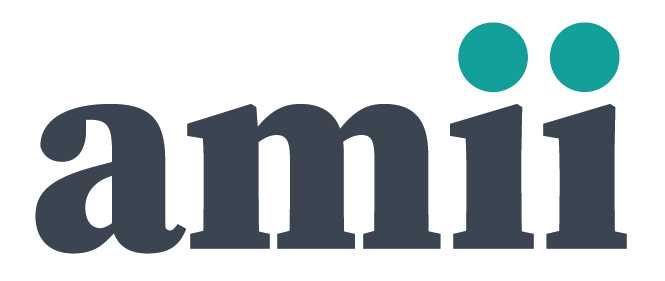Issue 8 | June 2024

Hello
And welcome.
Dave Middleton, Executive Chair, amii
Welcome to the latest amii members’ newsletter.
For those of you who came to the Spring summit incorporating the AGM, I hope that you enjoyed it. Whilst we missed some familiar faces, the energy in the room and the networking opportunities were fantastic.
For our members who couldn’t make it, don’t worry – we’ve got you covered! We’ve put together a special section reflecting on the summit that captures the spirit of the day. You’ll find all the important details, including our annual financials and voting results. Plus, we’ve sprinkled in some fun photos and videos of your colleagues enjoying the event. We hope this gives you a taste of what’s to come and gets you excited for next time!
Remember, your active participation is what makes these gatherings truly special. We’re already looking forward to seeing even more of you at our next event!
Thank you to those who have taken the time to share your thoughts and suggestions through the survey. Your feedback is invaluable and will guide us in planning future events.
This newsletter is packed with exciting insights, and we are thrilled to share some eye-opening articles that we think you’ll love. Benenden Health dives into the fascinating world of the gender health gap – don’t miss their guide for businesses on this important topic and my podcast with Dr Amy Pressland on this subject later in July. Equipsme brings us a thought-provoking piece on why elder care support might just be the next big thing in health insurance.
And that’s not all! Bluecrest Wellness has dropped a game-changing whitepaper on prevention as the new frontier for wellbeing. Trust us, it’s a must-read!
Here’s a heads-up from our friends at UKGI, the amii compliance partner: they’re shedding light on some sneaky social media pitfalls and recent FCA actions. Did you know they’re prosecuting nine influencers who accidentally stepped into financial promotions territory?
Speaking of which, we’ve got a timely webinar coming up on July 4th that dives deeper into this topic. Curious? Visit our website events page here to save your spot.
We are busy finalising the agenda for the November summit and have already secured our headline speaker, ex-professional footballer Paul McVeigh, who will be talking about the mindset needed to succeed at the top level. We have already opened registration for this event, secure your seat by using this link.
We’ve got a quick update on our comparison tool. While we were super excited to unveil it at the summit, we’ve decided to take a little more time to make it even better for you. Our user testing revealed some areas we can improve, and we want to make sure it’s absolutely top-notch before we share it.
The good news? We’re aiming to have it ready for our November summit. We can’t wait to show you what we’ve been working on!
In the meantime, keep an eye out for my upcoming podcasts and our webinars. We’ll be sharing some great content that I think you’ll find really valuable.
Wishing you all a fantastic summer! Can’t wait to catch up with everyone in November.
Newsletter Contents.
Benenden Health
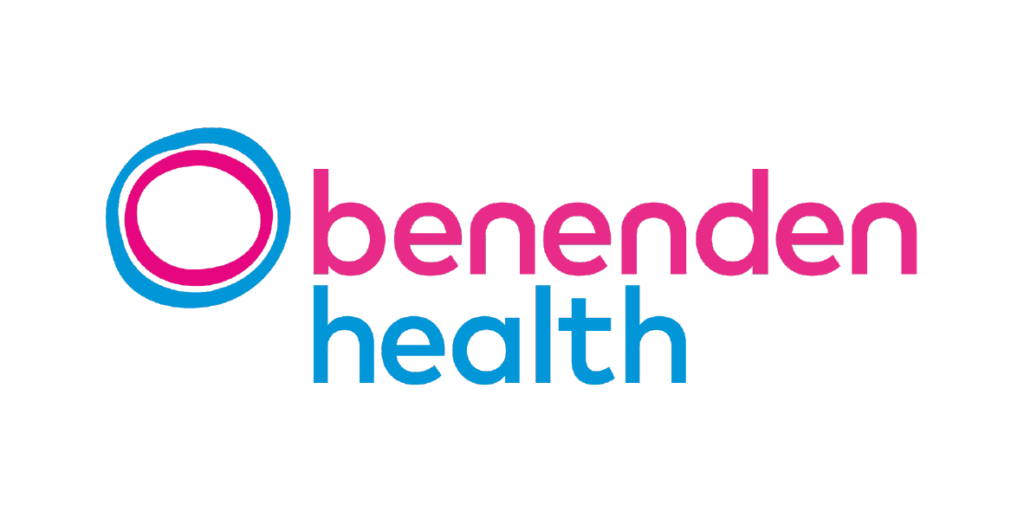
The gender health gap.
UK women experience poorer health outcomes than men. With the UK having the largest gender health gap across all G20 countries, this affects how women access healthcare and whether they are listened to.
Benenden Health researched this Gender Health Gap, aiming to understand women’s experiences, the barriers they face, and what change is needed from employers.

Women are experiencing workplace discrimination
Our research found that 37% of female professionals have heard comments about women being ‘more emotional’ than men, and a further third (33%) have witnessed jokes about periods.
Derogatory ‘jokes’ within the workplace immediately places a taboo on a very natural part of a woman’s biology. This then influences other aspects of a woman’s professional life – as many as 40% of female professionals stated that they have been left out of important meetings, promotion opportunities and pay rises.
This influences how women communicate
Women are reticent to speak honestly about their health in the workplace. Our research found that 42% of women feel uncomfortable talking to their manager about health issues. Furthermore, 36% of employers admitted that they don’t understand women’s health issues, which impacts their ability to support women.
This barrier for something that is so fundamental to a person’s life can cause lasting damage when it comes to retaining employees.
This influences how women communicate
A cultural shift is essential, supported by the right policies. Our respondents wanted pregnancy loss leave, flexible working, and maternity leave policies that exceed statutory requirements.
Support for women can also create a culture of openness surrounding health. Only 12% of employers we surveyed said they have a culture where women’s health issues can be talked about.
Benenden Health‘s ‘Gender Health Gap Guide for Businesses’, can support intermediaries’ clients in making important changes, complemented by Benenden Health’s ‘Healthcare for Business’ services.
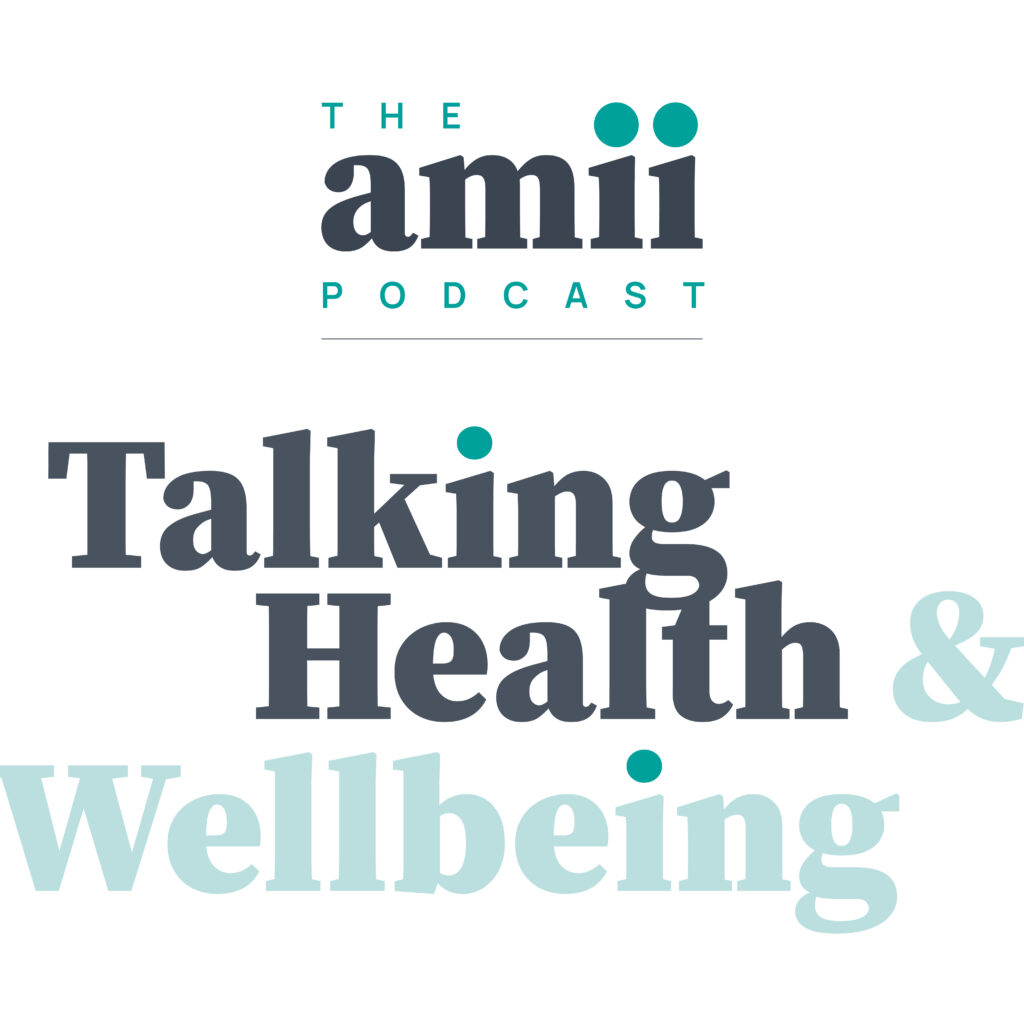
Coming soon
Please look out for our latest podcast which will look at this subject in depth. You can subscribe to our podcast by following the link below.
Have you registered to join the for Members Only section of our website?
The for Members Only section of our site provides a wealth of content for members, as well as access to all the benefits that being a member of amii provides. If you haven’t done so already, please do register to take advantage of everything your membership offers. You can do so by following the link below.
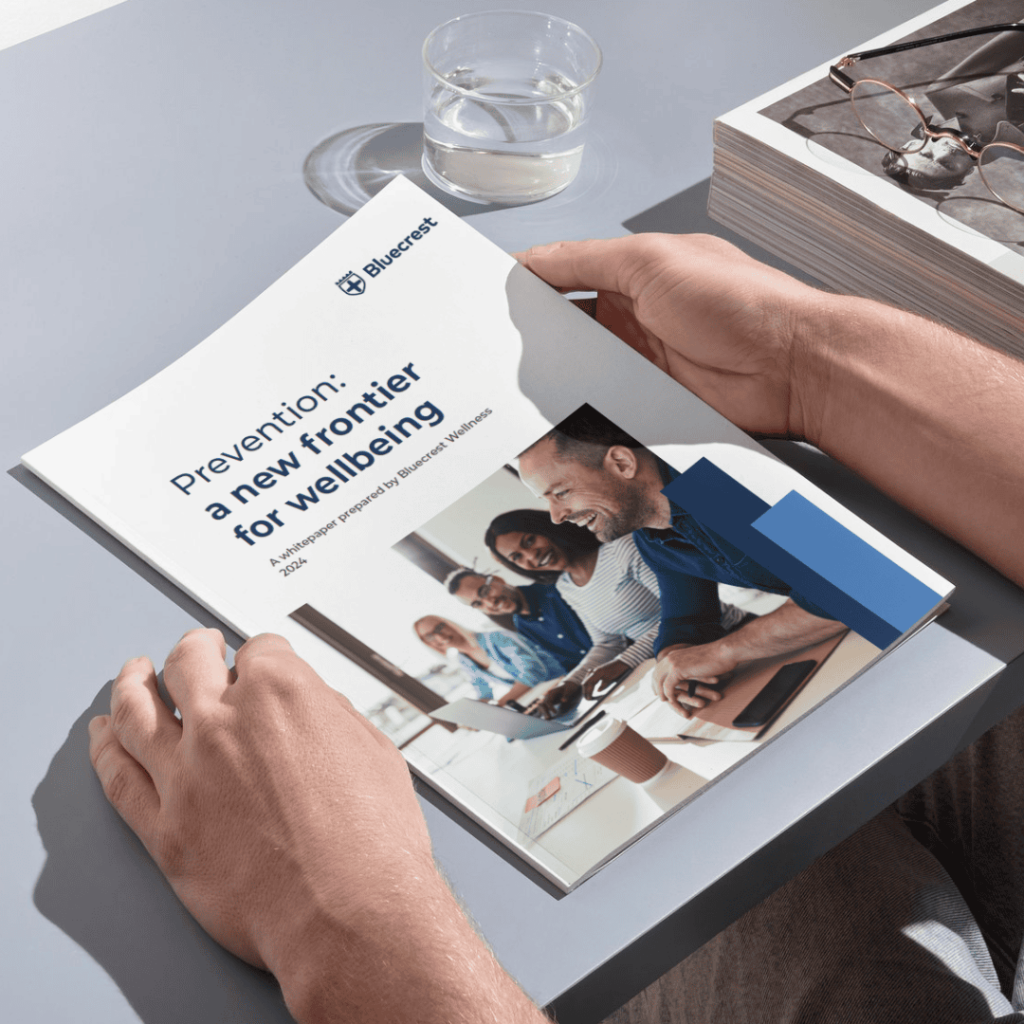
Bluecrest Wellness Unveils New Whitepaper
Prevention: A New Frontier for Wellbeing.
This month, Bluecrest Wellness introduced a groundbreaking whitepaper titled ‘Prevention: A New Frontier for Wellbeing.’ The document sheds light on the silent damage caused by underlying health issues within the UK workforce, highlighting a widespread reluctance to act on symptoms and the resulting detrimental impact on societal health
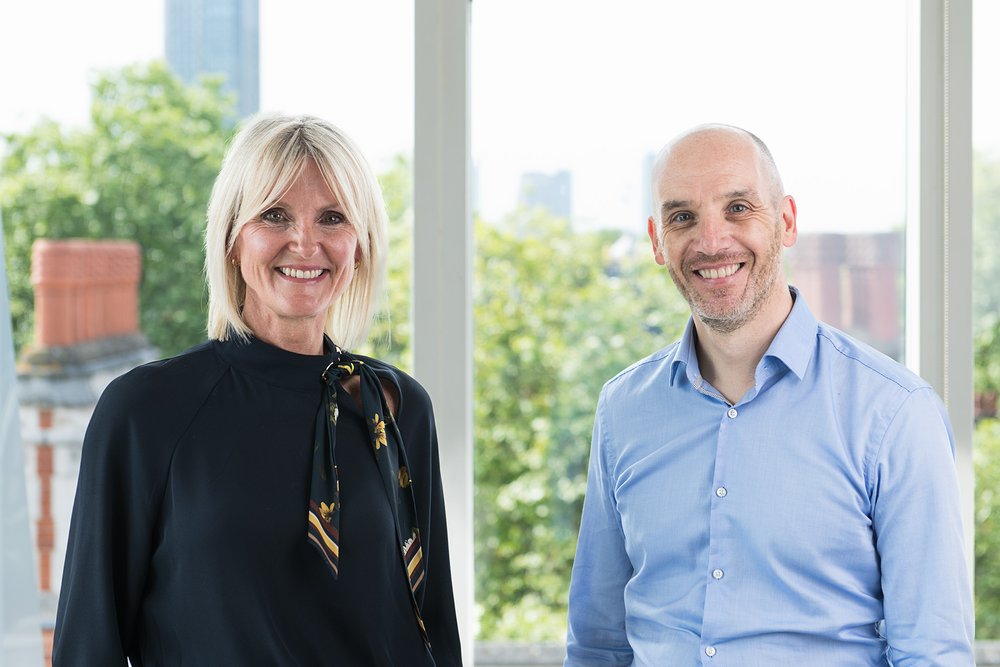
Bluecrest’s Chief Medical Officer, Dr. Thornton and CEO, Dominique Kent emphasised the critical role employers can play in reversing this trend, advocating for their employees’ health now and in the future, with health assessments being a key component of this evolution.
Dr. Thornton opened the discussion with a stark statement: “Your employees already have a long-term condition or are going to get one soon.” This assertion is underscored by NHS data indicating that 50% of individuals aged 55-64 have at least one long-term condition. Surprisingly, long-term conditions are not confined to older workers; over 30% of those aged 35-44 are also managing chronic health issues.
In 2022, minor illnesses emerged as the leading cause of workplace sickness, closely followed by conditions such as diabetes and Covid-19. Crucially, as Dr. Martin highlighted, one condition often precipitates another. For instance, obesity can lead to depression, creating a cascade of health issues. Many of these conditions, particularly minor illnesses, are preventable. UK Government statistics (2022) reveal that 40% of NHS costs are spent on treating preventable diseases.
Despite the preventability of many health issues, Bluecrest’s whitepaper found that people tend not to act upon symptoms when they first appear. Instead, a significant majority continue working while unwell. A startling 77% of people admitted to working despite feeling unwell, and while 56% of individuals reported feeling tired or run down in the past three months, only 29% sought medical advice.
The reluctance to consult a GP is pervasive, with common reasons being the perceived difficulty of securing an appointment or feeling that their symptoms are not severe enough. The whitepaper noted a gender disparity in this hesitation, with 59% of women compared to 44% of men reluctant to book a GP appointment. Dr. Thornton stressed the importance of taking vague symptoms seriously, warning that they can lead to serious problems if left unchecked. “Why aren’t we spending money on treating people before they get those conditions in the first place?” he asked.
Every individual has a unique set of health metrics. A Bluecrest Health Assessment can reveal these bespoke markers, offering valuable insights into a person’s health. Dominique Kent, Bluecrest’s CEO, elaborated on the next steps following a health assessment. “We help our customers to understand what’s going on in their bodies, so they can identify issues that need attention and what to do next. Our customers are able to take control of their health now and for the future – and live well, confident that their health is in good shape.”
Kent highlighted that while some people might receive critical results necessitating immediate action, most will find that they need to make simple lifestyle changes to prevent long-term conditions from developing. The desire to see the impact of these changes on their health makes health assessments particularly valuable. Bluecrest’s MyWellness app enables customers to track their health trends and progress effortlessly.
Kent praised the NHS for its exemplary treatment of chronic conditions but emphasised that health assessments can prevent such conditions from arising in the first place. “We need to spot signs and symptoms instead of conditions once they’ve taken hold.” Kent and Dr. Thornton advocate for a proactive approach to health, encouraging people to monitor their health regularly and make necessary adjustments to improve their wellbeing.
To inspire this shift from a culture of treatment to one of prevention, a combination of tests and wellbeing advice is crucial. Bluecrest Wellness is dedicated to creating a service that fosters this change. Excitingly, there is growing recognition of the value of prevention in the workplace. According to Bluecrest’s whitepaper, 86% of people expressed interest in gaining insights into their health through health assessments. The top reasons for this interest include peace of mind, early identification of health risks, and early detection of life-threatening diseases.
To conclude their presentation, Kent and Dr. Thornton outlined four key considerations for employers contemplating the introduction of health assessments for their staff. To access these detailed insights and to download the full report, employers are encouraged to visit Bluecrest’s website.
In summary, the Bluecrest whitepaper underscores the urgent need for a paradigm shift in how health is managed within the workforce. By embracing health assessments and fostering a preventive health culture, employers can play a pivotal role in enhancing their employees’ long-term wellbeing.
- Investment in Employee Health: Investing in health assessments demonstrates a commitment to employees’ wellbeing, potentially leading to reduced absenteeism and increased productivity.
- Tailored Health Insights: Health assessments provide bespoke health insights, enabling employees to take proactive measures tailored to their unique health profiles.
- Preventive Health Culture: Encouraging a preventive health culture can shift the focus from treating illnesses to maintaining overall health and preventing conditions before they develop.
- Support for Long-term Health: Offering health assessments supports employees in managing their long-term health, contributing to a healthier, more engaged workforce.
Webinar
10th July, 12:30 – 1:00pm
Are you looking to enhance your clients’ health strategies? Don’t miss this insightful webinar on “Mind the gap – why prevention and health confidence could be the missing link in your clients’ health strategy.”
Join Jason Morris and Jon Darby from Bluecrest Wellness for this 30-minute session on Wednesday, July 10th at 12:30 PM and equip yourself with valuable knowledge on preventative health measures and employee assessments.
Reflecting on
The Health and Wellbeing Summit.
All the amii team thoroughly enjoyed our latest Health and Wellbeing Summit, and we hope if you attended that you did too. It was fantastic to hear from our amazing guest speakers, as well as have the opportunity to network and have some really productive conversations.
If you couldn’t make it on this occasion, we hope you can make the next one. In the meantime, here are the key details from the day. After that you can have a look at what some of our attendees thought in the video below, as well as some of the images from the day.
2023 Financial Headlines
Income
£165,699
Income was up due to membership growth in 2023 from 105 to 119 for Intermediaries and 16 to 21 for Corporate when compared to 2022.
Expenses
£117,517
Expenses were up £15,870 when compared to 2022, largely down to increased remuneration for the paid Executive roles and the cost of meetings and events
Net Profit
£48,182
Net profit decreased by £11,355 but remained ahead of 2021. As previously explained we are spending more to ensure that amii is delivering what’s required by the membership and to raise our profile within the health and wellbeing space
AGM Voting
Ahead of the AGM, we wrote to our members to inform them that under clause 4.2 of the amii constitution, the Chair, Vice Chair, Treasurer, and General Secretary honorary officers of the Association (Dave Middleton, Claire Ginnelly, Paul Swanson & Tina Jennings) were eligible for re-election.
Further, under clause 5.4 of the amii constitution, three intermediaries and four corporate Executive Committee members (Isaac Feiner of Lifepoint Healthcare Ltd, Ian Sawyer of Howden Life & Health, Wayne Pontin of Sante Partners, Liam Kennedy of Vitality, David Hughes of Aviva, Iain McMillan of Bupa and Paul Moulton of Axa) were also eligible for re-election.
We invited any persons wishing to stand for the above positions to submit their nominations. No submissions were received. All those occupying the Honorary Officer and Executive Committee positions indicated they were happy to continue working with amii and would seek re-election. A motion to vote for their reelection for another term was passed.
What did people think of the day?

Why elder care support
Should be the new frontier for health insurance.
equipsme
Many of those being cared for are elderly relatives – and many of those caring will also be looking after children as well as trying to do their day job. It’s known as the ‘sandwich generation’, and it’s taking a toll not only on individuals in terms of emotional, physical and financial strain – but on the businesses they work for.
In the workplace, 1 in 7 [iii] people are thought to be juggling work and care, with more senior staff members more likely to be affected – up to 1in 4 [iv] women and 1 in 8 men [v] men.
Women in particular suffer what elder care experts Taking Care call both the ‘motherhood’ and ‘daughterhood’ penalty – and can end up falling out of the workplace altogether.

Bucking the trend of women in caring roles is, Tom, a senior executive in an accountancy firm. He’d dropped his daughter at nursery and popped in to see his mum on the way to an important meeting in the office. She’d had an accident in the night, and Tom found her on the floor and extremely distressed. He had to clean up and get his mum comfortable again.
Although he made the meeting, he freely admits he wasn’t performing at his best when he got there.
It’s experiences like these that have caused innovative health insurance company Equipsme to partner with Taking Care to embed discounts on personal alarms and 24/7 monitoring across all of its health plans – one of the first providers to recognise and address the issues faced by ‘sandwich’ workers.
Matthew Reed Managing Director at Equipsme, said: “Tom’s story isn’t unusual. What’s happening in families very clearly impacts workers across the board – and that makes the current crisis in elder care the business of businesses.
“We know that with prices rising across the sector with demand and use it’s hardly reasonable to expect group health insurance to physically cover older family members. But it IS reasonable to expect them to respond to end-users needs – and for providers to look to add extra value wherever they possibly can.
Reed continues, “At Equipsme, we’re already the only group health provider who allows individuals to upgrade their plans independently and add on their partner and children. We’ve also made sure that in things like our dental and optical cover the pot expands with the family at no extra cost, and our nurse advice line already supports people with their own or their families’ health issues. But as a modern health insurance provider we wanted to do more – and specifically do more for informal carers.”
“At Taking Care we know a lot of people like Tom and his mum,” adds Lauren Frake, an Independent Living Advisor from Taking Care. “These are people caring for children and parents or other relatives – all while also holding down a job. It impacts careers, health, and financial stability – and for many it’s just not possible to juggle everything. Our research [vi] shows that 1 in 3 adults will give up work to care for elderly parents – because there’s simply no other way to do it.
As a nation, we have to do more, and that has to start by having honest conversations. Elderly care is seen as a taboo topic to many households, with nine out of ten people saying they have not discussed future care plans with their parents, and 50 per cent of people aged 50+ saying they have not discussed what will happen when their parents become too frail to care for themselves.
Frake continues, “It’s why we launched our Have the Talk [v11] campaign – and why we do what we do. Elder care support can help people stay in work, find some peace of mind and some effective, real-time back-up. Crucially, it also helps the older people they love stay in their own home and live their lives with more confidence. To date, we’ve helped more than 200,000 people feel safer at home and out and about, and we’re delighted to be working with Equipsme to support more older people and their carers.”
The new partnership means that alongside their Equipsme health benefits, members can choose to purchase Taking Care’s Which? recommended elder care personal alarms which are connected to emergency resolution teams 24 hours a day and 365 days of the year. Taking Care’s highly trained staff are there to help in the event of things like falls, medical emergencies, intruders, fires, or any other distress and will immediately notify family members, listed contacts and the emergency services if required.
It would have made the world of difference to Tom’s day, and more importantly to his mum, who now has extra support in place.
“As people live longer and the working population ages, so do their parents and relatives, and the impact of that flows right back to businesses, added Matthew. “Which is exactly why as an industry we have to keep changing to meet the wider health needs of our clients and customers.”
Financial Promotions
Slips, trips and falls.

You may have noticed recent FCA activity whereby it is prosecuting nine “Influencers” who used their social media platforms to promote a foreign exchange trading scheme.
Unfortunately for these individuals, the scheme was not authorised and had the potential to cause significant harm to investors. The promotional activity was noticed by the FCA, who took swift action to stop the scheme from being publicised and decided to use its enforcement powers against the individuals concerned, the outcome for which could be a fine, up to two years imprisonment, or both.
Social media has been around for many years with many amii members now using the platforms as a way to engage with customers. The plethora of “reality” TV shows we now see also generates significant publicity for the participants, who attract large numbers of followers to their channels. Given this wide reach, the FCA is taking closer interest in what these influencers are promoting. It has led to the FCA publishing its “Guidance on Financial Promotions in Social Media” in March this year (FG24/1), to remind firms of their obligations when using social media as a means for advertising their propositions.
Social media posts are (and have always been) subject to the FCA’s rules for financial promotions, which means they must be “fair clear and not misleading”.
The FCA has been very clear on this for many years, and members should have systems and controls which make sure their promotional material meets this requirement regardless of the channel or platform used to distribute it. “Promotions aren’t just about the likes, they’re about the law,” was the clear message from the FCA as it announced its prosecutions. It demonstrates the FCA’s commitment to hold individuals to account, and of the importance of the rules regarding the promotion and communication of financial products and services.
This enforcement action is important to note as it shows the FCA’s commitment to ensuring effective deterrents are in place. So those who have been approved as Senior Managers, or Certification Function role holders under the SM&CR, would be well advised to check that their firm has robust systems and controls in place, and takes steps to ensure its social media presence meets the FCA’s requirements. The FCA can (and does) review social media channels, and it uses complex scraping technology and AI to help it identify and take action where firms publish non-compliant promotional material. It can take just one post for the FCA to trigger an investigation into the firm.
Poor quality, misleading or unclear advertising within social media are key indicators of a firm’s culture and governance arrangements, which the FCA will pick up on. Given the accountability placed on individuals who are subject to the SM&CR, we would recommend that amii members take steps to review their processes for issuing financial promotions and ensure that they have sufficient controls which ensure they meet the necessary standards.
Join us for a webinar to hear more and get answers to your questions on this very subject by using the link below.
Webinar
4th July, 12:30 – 1:00pm
Join us for a 30-minute lunch and learn session to hear about the FCA’s current views on financial promotions, the impact of “finfluencers” within campaigns, and areas if best practice.
